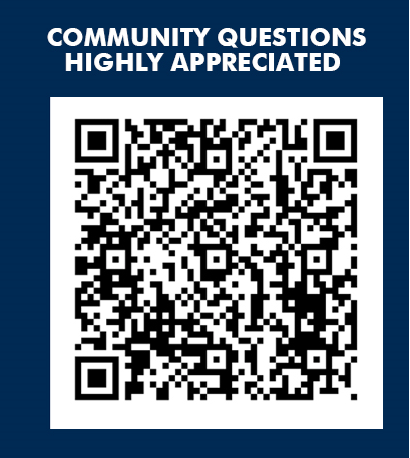Event Information and Updates
Seattle Colleges Community Presentations
Thank you, community, for submitting your presentations! ACO is honored to announce the following presentations from our own community of staff and faculty:
We are currently finalizing the schedule for 2026.
Social Justice Week Special Community Conversations
Community Provided Questions for Speakers
We invite you to submit questions for any of our speakers before their event using the QR code or complete this form (opens in new tab).
Special Guest Speakers
- DACA and Black Americans: An Immigration Nightmare (Essence Magazine)
- Meet Denea Joseph (PopSugar interview)
- Changing the Narrative of Undocumented Immigrants
- Dolores Huerta - Archives of Women's Political Communication
- Access is for Everyone: Interview with Patty Berne, Co-Founder and Director of Sins Invalid
- A Disability Justice Primer - Skin, Tooth, and Bone
The King Center offers a number of educational resources on enacting nonviolent social change and educating all on the tenets of civic discourse and civil disobedience.
Highlighting surprising facts about King’s life is now available at nmaahc.si.edu/5thingsMLK.
